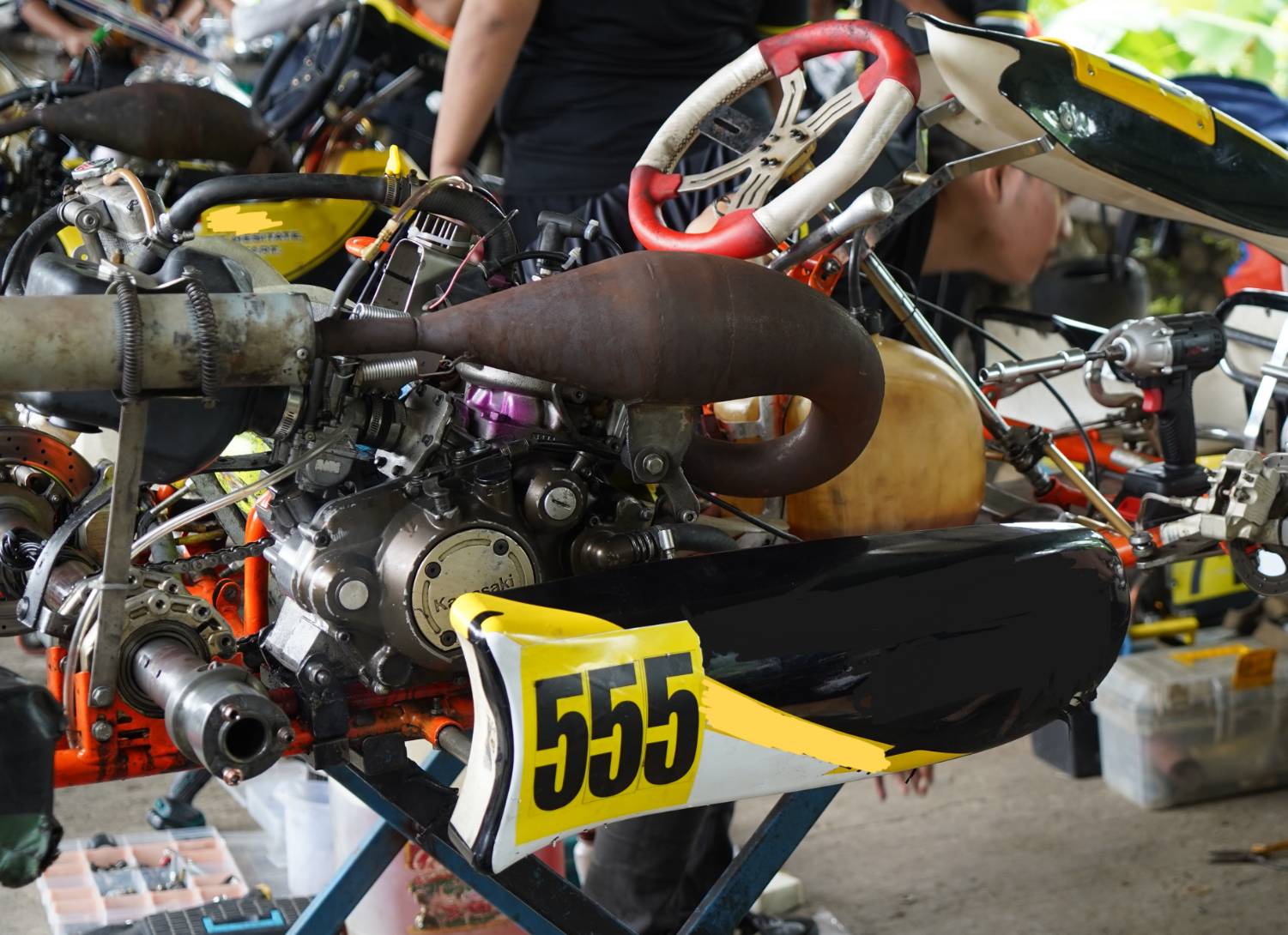Difference between revisions of "Muhammad Dhia Andriyanto"
| Line 29: | Line 29: | ||
II. Introduction | II. Introduction | ||
| − | + | [[File:230190.jpg]] | |
A go-kart is a four-wheeled vehicle that lacks suspension and a differential. It is a lightweight racing vehicle that is used for racing. In comparison to other vehicles, the go-kart has a low ground clearance. Engine, wheels, steering, axle, and chassis are the components of a go-kart. The go-kart is propelled by a 150cc engine. In this case, I used Ninja 150 Super Kips 2-Stroke Engine. | A go-kart is a four-wheeled vehicle that lacks suspension and a differential. It is a lightweight racing vehicle that is used for racing. In comparison to other vehicles, the go-kart has a low ground clearance. Engine, wheels, steering, axle, and chassis are the components of a go-kart. The go-kart is propelled by a 150cc engine. In this case, I used Ninja 150 Super Kips 2-Stroke Engine. | ||
Revision as of 00:18, 28 February 2023
Introduction
Hello everyone, my name is Muhammad Dhia Andriyanto - 2006517796 currently this is my 6th semester in Mechanical Engineering at Universitas Indonesia. This page is my summary about Energy Conversion System 2.
Chat With ChatGPT
on 21 February 2023, my friends and I chat with ChatGPT regarding the correlation between sugar cane factory, automotive factory, and oil & gas factory. When I asked ChatGPT about this topic, ChatGPT said that the correlation is the use of ethanol and its production process.
One potential link between these factories is that they are all part of the same supply chain. The sugar cane factory, for example, may supply sugar to the automotive factory, which uses it to make ethanol for fuel. The oil and gas factory may also supply fuel to the automotive factory, and some of the ethanol may be used as a blend component for gasoline. Furthermore, the oil and gas plant may provide diesel or other fuels to power the sugar cane factory's machinery. The energy is required by the sugar cane factory to power its machinery and process the sugar cane into sugar or ethanol. Fuel is required by the automotive factory to power its assembly lines and other operations. Energy is required by the oil and gas industry to extract, refine, and transport oil and gas. These factories may also be connected in terms of electricity or heat supply, depending on their location and available energy sources.
All of these factories have the potential to have serious environmental consequences. If the sugar cane factory relies on clearing land for new plantations, it may generate waste that must be disposed of or contribute to deforestation. The automotive factory's manufacturing processes may pollute the air or water, or it may contribute to greenhouse gas emissions through the use of fossil fuels. Of course, the oil and gas factory is directly involved in the extraction and processing of fossil fuels, which have numerous environmental consequences.
Apology
On Friday, 24 February 2023...I went to class 15 minutes late and Mr. DAI, Bang Tanwir, and my friends are already in class. I feel terrible and regret for what I did. Hope for the best for the future. Thank you Mr. DAI, Bang Tanwir, and friends
Class Summary
24/02/2023
On this date, my friends and I were given a tutorial by Bang Tanwir regarding how to burns fuel and air to produce power and fuel gases on Internal Combustion Engine using OpenModelica. by using OpenModelica there were ThermosysPro library inside the application and used the ICE (alternating Engine), Fuel Source, Air source, Sink, Water, and singularPressureLoss.
Personal Project
Calculating & Modelling The Efficiency Between Air and Fuel on Gokart 2-Stroke Engine
I. Abstract
II. Introduction
 A go-kart is a four-wheeled vehicle that lacks suspension and a differential. It is a lightweight racing vehicle that is used for racing. In comparison to other vehicles, the go-kart has a low ground clearance. Engine, wheels, steering, axle, and chassis are the components of a go-kart. The go-kart is propelled by a 150cc engine. In this case, I used Ninja 150 Super Kips 2-Stroke Engine.
A go-kart is a four-wheeled vehicle that lacks suspension and a differential. It is a lightweight racing vehicle that is used for racing. In comparison to other vehicles, the go-kart has a low ground clearance. Engine, wheels, steering, axle, and chassis are the components of a go-kart. The go-kart is propelled by a 150cc engine. In this case, I used Ninja 150 Super Kips 2-Stroke Engine.
III. Objectives
IV. Literature Study
V. Calculation
VI. Modelling & Simulation
VII. Analysis
VIII. Conclusion